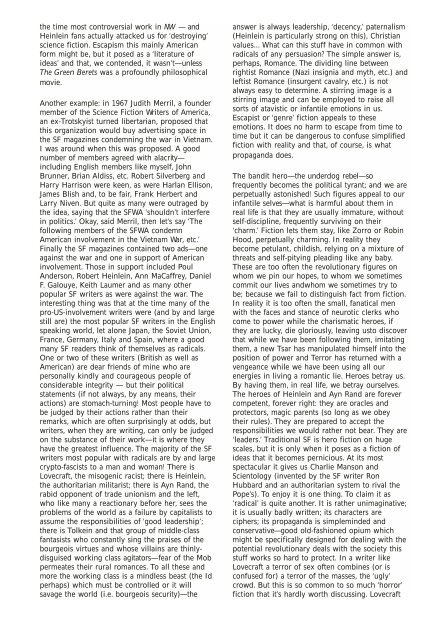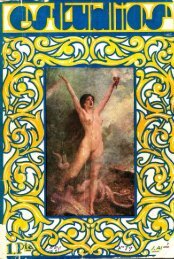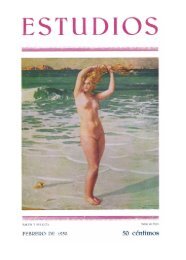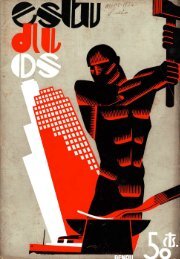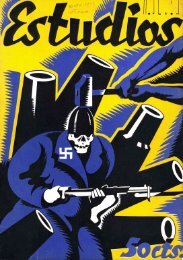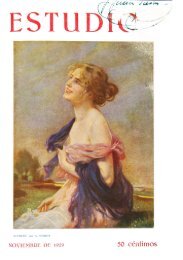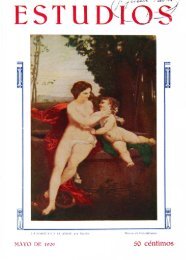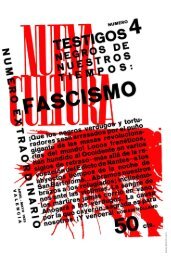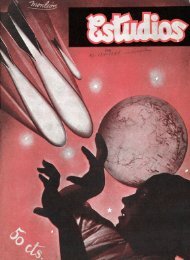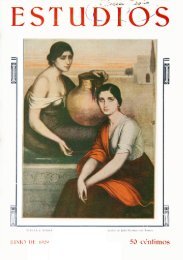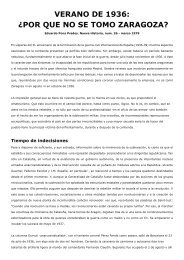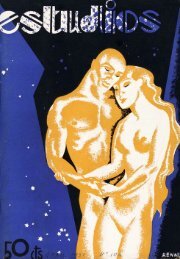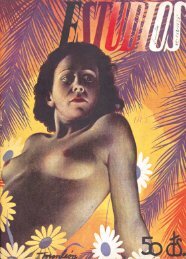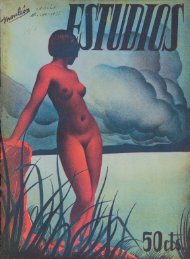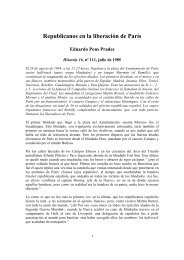Starship Storm Troopers (Michael Moorcock) - Christie Books
Starship Storm Troopers (Michael Moorcock) - Christie Books
Starship Storm Troopers (Michael Moorcock) - Christie Books
You also want an ePaper? Increase the reach of your titles
YUMPU automatically turns print PDFs into web optimized ePapers that Google loves.
the time most controversial work in NW — and<br />
Heinlein fans actually attacked us for ‘destroying’<br />
science fiction. Escapism this mainly American<br />
form might be, but it posed as a ‘literature of<br />
ideas’ and that, we contended, it wasn’t—unless<br />
The Green Berets was a profoundly philosophical<br />
movie.<br />
Another example: in 1967 Judith Merril, a founder<br />
member of the Science Fiction Writers of America,<br />
an ex-Trotskyist turned libertarian, proposed that<br />
this organization would buy advertising space in<br />
the SF magazines condemning the war in Vietnam.<br />
I was around when this was proposed. A good<br />
number of members agreed with alacrity—<br />
including English members like myself, John<br />
Brunner, Brian Aldiss, etc. Robert Silverberg and<br />
Harry Harrison were keen, as were Harlan Ellison,<br />
James Blish and, to be fair, Frank Herbert and<br />
Larry Niven. But quite as many were outraged by<br />
the idea, saying that the SFWA ‘shouldn’t interfere<br />
in politics.’ Okay, said Merril, then let’s say ‘The<br />
following members of the SFWA condemn<br />
American involvement in the Vietnam War, etc.’<br />
Finally the SF magazines contained two ads—one<br />
against the war and one in support of American<br />
involvement. Those in support included Poul<br />
Anderson, Robert Heinlein, Ann MaCaffrey, Daniel<br />
F. Galouye, Keith Laumer and as many other<br />
popular SF writers as were against the war. The<br />
interesting thing was that at the time many of the<br />
pro-US-involvement writers were (and by and large<br />
still are) the most popular SF writers in the English<br />
speaking world, let alone Japan, the Soviet Union,<br />
France, Germany, Italy and Spain, where a good<br />
many SF readers think of themselves as radicals.<br />
One or two of these writers (British as well as<br />
American) are dear friends of mine who are<br />
personally kindly and courageous people of<br />
considerable integrity — but their political<br />
statements (if not always, by any means, their<br />
actions) are stomach-turning! Most people have to<br />
be judged by their actions rather than their<br />
remarks, which are often surprisingly at odds, but<br />
writers, when they are writing, can only be judged<br />
on the substance of their work—it is where they<br />
have the greatest influence. The majority of the SF<br />
writers most popular with radicals are by and large<br />
crypto-fascists to a man and woman! There is<br />
Lovecraft, the misogenic racist; there is Heinlein,<br />
the authoritarian militarist; there is Ayn Rand, the<br />
rabid opponent of trade unionism and the left,<br />
who like many a reactionary before her, sees the<br />
problems of the world as a failure by capitalists to<br />
assume the responsibilities of ‘good leadership’;<br />
there is Tolkein and that group of middle-class<br />
fantasists who constantly sing the praises of the<br />
bourgeois virtues and whose villains are thinlydisguised<br />
working class agitators—fear of the Mob<br />
permeates their rural romances. To all these and<br />
more the working class is a mindless beast (the Id<br />
perhaps) which must be controlled or it will<br />
savage the world (i.e. bourgeois security)—the<br />
answer is always leadership, ‘decency,’ paternalism<br />
(Heinlein is particularly strong on this), Christian<br />
values... What can this stuff have in common with<br />
radicals of any persuasion? The simple answer is,<br />
perhaps, Romance. The dividing line between<br />
rightist Romance (Nazi insignia and myth, etc.) and<br />
leftist Romance (insurgent cavalry, etc.) is not<br />
always easy to determine. A stirring image is a<br />
stirring image and can be employed to raise all<br />
sorts of atavistic or infantile emotions in us.<br />
Escapist or ‘genre’ fiction appeals to these<br />
emotions. It does no harm to escape from time to<br />
time but it can be dangerous to confuse simplified<br />
fiction with reality and that, of course, is what<br />
propaganda does.<br />
The bandit hero—the underdog rebel—so<br />
frequently becomes the political tyrant; and we are<br />
perpetually astonished! Such figures appeal to our<br />
infantile selves—what is harmful about them in<br />
real life is that they are usually immature, without<br />
self-discipline, frequently surviving on their<br />
‘charm.’ Fiction lets them stay, like Zorro or Robin<br />
Hood, perpetually charming. In reality they<br />
become petulant, childish, relying on a mixture of<br />
threats and self-pitying pleading like any baby.<br />
These are too often the revolutionary figures on<br />
whom we pin our hopes, to whom we sometimes<br />
commit our lives andwhom we sometimes try to<br />
be; because we fail to distinguish fact from fiction.<br />
In reality it is too often the small, fanatical men<br />
with the faces and stance of neurotic clerks who<br />
come to power while the charismatic heroes, if<br />
they are lucky, die gloriously, leaving usto discover<br />
that while we have been following them, imitating<br />
them, a new Tsar has manipulated himself into the<br />
position of power and Terror has returned with a<br />
vengeance while we have been using all our<br />
energies in living a romantic lie. Heroes betray us.<br />
By having them, in real life, we betray ourselves.<br />
The heroes of Heinlein and Ayn Rand are forever<br />
competent, forever right: they are oracles and<br />
protectors, magic parents (so long as we obey<br />
their rules). They are prepared to accept the<br />
responsibilities we would rather not bear. They are<br />
‘leaders.’ Traditional SF is hero fiction on huge<br />
scales, but it is only when it poses as a fiction of<br />
ideas that it becomes pernicious. At its most<br />
spectacular it gives us Charlie Manson and<br />
Scientology (invented by the SF writer Ron<br />
Hubbard and an authoritarian system to rival the<br />
Pope’s). To enjoy it is one thing. To claim it as<br />
‘radical’ is quite another. It is rather unimaginative;<br />
it is usually badly written; its characters are<br />
ciphers; its propaganda is simpleminded and<br />
conservative—good old-fashioned opium which<br />
might be specifically designed for dealing with the<br />
potential revolutionary deals with the society this<br />
stuff works so hard to protect. In a writer like<br />
Lovecraft a terror of sex often combines (or is<br />
confused for) a terror of the masses, the ‘ugly’<br />
crowd. But this is so common to so much ‘horror’<br />
fiction that it’s hardly worth discussing. Lovecraft


